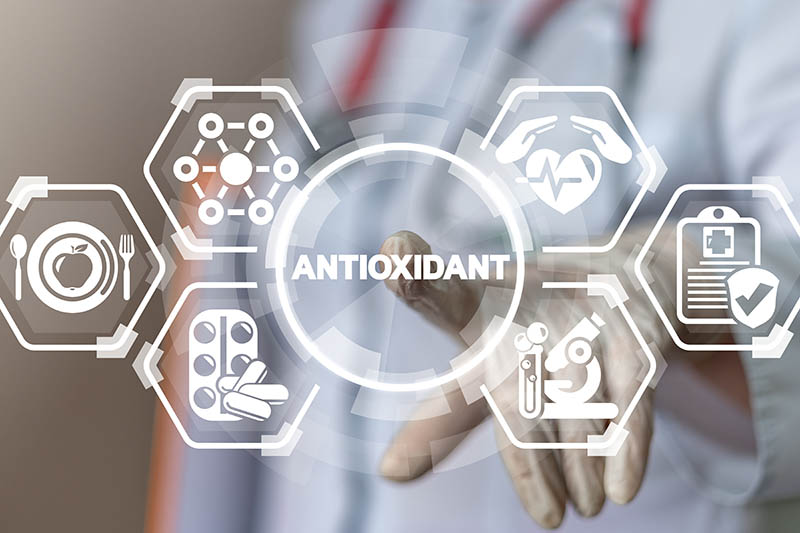
Everyday Chemicals Are Screwing Up Your Testosterone
You may have already read my other article on 7 habits which are killing your testosterone. There was a section in that on Water because

Phytonutrients, also referred to as “phytochemicals” are chemicals produced by plants to maintain their own robust health.
These nutrients come in a variety of classes under the phytonutrient umbrella but are often what gives vegetables such as beetroot and fruits like pomegranate and dark berries their vibrant color.
Here is an example of a few of the best phytonutrients for human health:
The chemical structure within each of those can be broken down even further and the immense health benefits these powerful nutrients can provide to humans is wide ranging and in some cases, life changing.
Here is a snapshot of just some of the health benefits which have been linked to various phytonutrients:
In this article, we are going to take a closer look at some of the most impressive phytonutrients, what they can do for you and how you can get them in your diet.
Keep in mind this is merely a snapshot of each of these phytonutrients and much of the research mentioned is still preliminary and ongoing.
Chlorophyll is found in high quantity in dark green foods like spirulina, spinach, broccoli, asparagus, green tea, kale, green cabbage, etc…
Research on the health benefits of chlorophyll is still fairly preliminary with many studies being done on animals or in vitro (petri dish) and even many human case studies still need to be replicated on a larger scale.
With that said, early research is still showing potential health benefits in the following areas.
Many doctors and scientists also speculate it may help
Flavonoid and are extremely abundant in some fruits like apples, blackberries, grapes and cacao (raw dark chocolate), some vegetables like asparagus and many tea’s with green tea being at the top of the list.
There are 6 different types of flavonoids which are:
Within these 6 different types of flavonoids, it can be broken down even further. For example, catechins, EGCG and rutin are three of the most popular and well studied types of flavonoids.
Rather than try and break down exactly what EGCG does for you though, it’s better to look at the whole food as foods rich in flavonoids have multiple aspects which benefit your health.
Beetroot is extremely rich in a unique phytonutrient called betacyanin which is a class of betalains.
Other foods rich in this nutrient include:
Betacyanin is known to provide significant antioxidant, anti-inflammatory and detoxification support. (study)
In addition to that, betacyanin is extremely rich in healthy nitrates which the body can convert to nitric oxide which can improve blood flow and athletic performance.
Ellagic acid is what is known as a phenol antioxidant which means it reduces the rates of oxidation of organic matter. Ellagic acid has antioxidant, anti-mutagen and anti-cancer properties.
Foods rich in ellagic acid include walnut, pecan, strawberry, cranberry, grape and pomegranate.
Polyphenols are a powerful class of antioxidants believed to offer a huge variety of health benefits including improving athletic performance. (study)
There are over 8,000 types of polyphenols and flavonoids are actually one of the types.
Science continues to find more and more benefits of phytonutrients in vegetables, fruits, bean/legumes and herbs.
However, it’s important to not get too attached to one specific nutrient property and rather look at the total health benefit of the foods you consume.
You probably noticed that many of the phytonutrients I mentioned in this article are in multiple food sources, and many of those food sources are mentioned multiple times because they provide a multitude of phytonutrients.
These foods are also often referred to as “superfoods” for their overall extreme health benefits.
The big takeaway I hope you get from this article is to look beyond standard micronutrients which are the prototypical vitamins and minerals and look at the overall health benefits foods rich in phytonutrients can provide.
A focus on phytonutrients is what drove my developing a new standard in multivitamin which is focused on superfoods.
Nothing will ever take the place of eating whole foods but getting a healthy dose of superfoods each and every day is a difficult task for most of us and that is why supplements can be so beneficial.
A great supplement doesn’t replace whole foods but it does supplement our diet in helping us get all of those important phytonutrients.

You may have already read my other article on 7 habits which are killing your testosterone. There was a section in that on Water because

Rhodiola Rosea stands out as a potent adaptogenic herb with a rich history of traditional use and a growing body of scientific research. Revered for

In this comprehensive article, we will explore what L-tyrosine is, its benefits as a pre-workout supplement, the correct dosage, and other potential health benefits it

Betaine anhydrous is becoming an increasingly popular ingredient for pre-workouts. In this article, we will explore the fundamentals of betaine anhydrous, its connection to carnosine,

Beta-alanine is a pre-workout powerhouse. From boosting workout performance to potential anti-aging effects, discover why this amino acid is a favorite among health buffs.

You may have already read my other article on 7 habits which are killing your testosterone. There was a section in that on Water because

Rhodiola Rosea stands out as a potent adaptogenic herb with a rich history of traditional use and a growing body of scientific research. Revered for

In this comprehensive article, we will explore what L-tyrosine is, its benefits as a pre-workout supplement, the correct dosage, and other potential health benefits it
Discount Applied Successfully!
Your savings have been added to the cart.